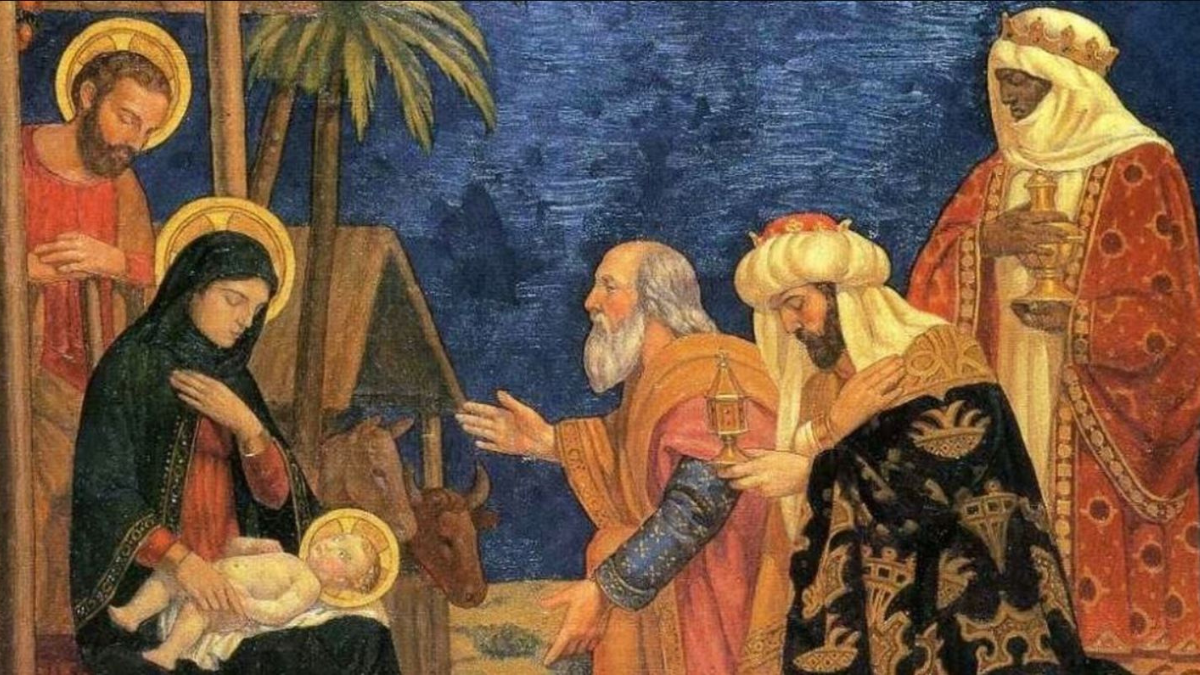

Epiphany, an Overlooked but Important Day
Today could be the most significant Christian holiday that Christians know about the least. Epiphany, the 12th day of Christmas, was set aside in the Church calendar to remember the visitation of the Magi to the infant Jesus.
01/6/23
John Stonestreet

Today could be the most significant Christian holiday that Christians know about the least. Epiphany, the 12th day of Christmas, was set aside in the Church calendar to remember the visitation of the Magi to the infant Jesus. The day’s name comes from a Greek word that means “manifestation.” Through these strange visitors, God’s gift of Himself to the world was first made manifest to the wider world, and we are given a glimpse of the fulfillment of God’s promise that through Israel the rest of the world would be blessed.
In fact, in much of the Christian world until recently, gifts were exchanged on Epiphany rather than on Christmas day. A former Breakpoint colleague, who grew up in Puerto Rico, once recalled how neighborhood children there would leave straw out for the Magi’s camels on the night before Epiphany. Today, of course, Christmastime gift-giving has shifted to December 25. Still, what Epiphany commemorates is central to the Christian faith and remains worthy of the Church’s attention.
Among those who understood this was Lew Wallace, someone who lived as eventful a life as possible. Civil War buffs will remember that Wallace may have saved the Union at the Battle of Monocacy in 1864, when his forces delayed Confederate General Jubal Early long enough to prevent the capture of Washington, D.C. Later, as territorial governor of New Mexico, Wallace dealt with the likes of Pat Garrett and Billy the Kid. Still, it was a reunion of Civil War veterans that led to that for which Wallace is best known today.
The story was told a few years ago on the Fox News website by John Murray, head of the Brookstone Schools and a commissioned Colson Fellow. On a train ride in 1876 to a reunion in Indianapolis, Wallace was reunited with his old comrade-in-arms Colonel Robert Ingersoll, a man known as the “great agnostic,” who traveled the country deriding and challenging people of faith. This time, he aimed his fire at Wallace, who was mostly indifferent to his own Christian faith.
Wallace later described their conversation:
To lift me out of my indifference, one would think only strong affirmations of things regarded holiest would do. Yet here was I now moved as never before, and by what? The most outright denials of all human knowledge of God, Christ, Heaven, and the Hereafter which figures so in the hope and faith of the believing everywhere. Was the Colonel right?
To prove Ingersoll wrong, Wallace returned to a short story he had written during the Civil War about the Magi, “who had captured his attention as a young boy—taking a ‘lasting hold on his imagination.’” The conversation with Ingersoll prompted Wallace to wonder again, “Who were they? Whence did they come?” And above all, “what led them to Jerusalem asking of all they met the strange question, ‘Where is he that is born King of the Jews?’”
Starting with this meditation on the Epiphany, Wallace expanded the story, adding more meditations on the life of Christ. Eventually, in 1880, he published the finished work, about a fictitious Jewish prince who discovered “the necessity of a Savior.” You may know it as Ben Hur: A Tale of the Christ, which remained the best-selling American novel until Gone With the Wind was published in 1936. And, of course, it was the basis of the 1959 film starring Charlton Heston, which won 11 Academy Awards.
When Wallace died in 1905, he believed he had met Ingersoll’s challenge. Millions of Americans agreed. Like the Magi before him and John Murray after him, Wallace’s reflection is an example of what it means that the light of Christ has gone out into the world.
In a society that so effectively distracts us with the temporal, it can be difficult to see “the true light, which gives light to everyone, [who had come] into the world,” much less to fulfill our calling to take the light to others. A great way to start is by remembering and celebrating Epiphany. Another is to commit, like Lew Wallace did, to the intentional study of Scripture and the overall renewing of the mind. This month, the Colson Center is offering a tremendous book and set of teaching videos on cultivating a Christian mind. Go to colsoncenter.org/january to learn more.
Or, like John Murray did many years ago, commit a year to joining others and working through the implications of a Christian worldview for all of life. Consider joining the Colson Fellows program. Applications are being accepted beginning January 9 for the next class, which will start later this year.
For more resources to live like a Christian in this cultural moment, go to colsoncenter.org.
Have a Follow-up Question?
Up
Next

Related Content

© Copyright 2020, All Rights Reserved.













